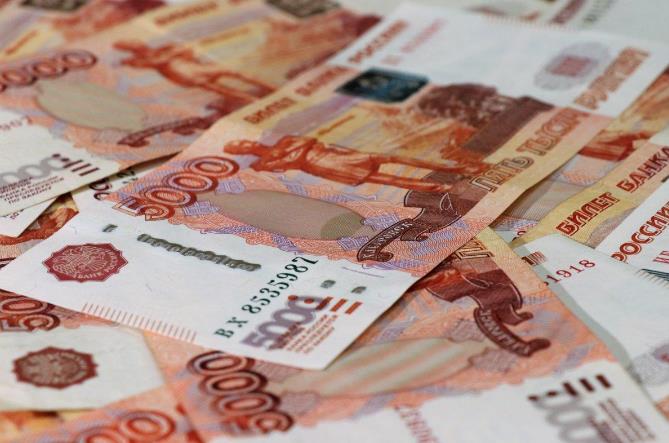Russia’s Energy Exports Plummet to Pre-Soviet Collapse Levels, Moscow Faces Power and Heating Outages
The reality for Russians may be starkly different from what the Kremlin portrays. At a recent year-end press conference, Russians bluntly told President Putin that their lives differed significantly from those depicted in Russian state media.
According to the “Businessman Newspaper,” on the morning of January 4th, more than 21,000 people in Moscow’s Podolsk town experienced power and heating outages due to an explosion in the heating main of the Klimovsk Special Ammunition Factory. The Russian government has not disclosed specific details. Locals, unable to bear the cold in their homes, gathered in the town square, demanding the government restore heating and punish those responsible for the outage. “The police quickly arrived to disperse us. I wish they would restore the heating as promptly as they dispatch officers,” said a petitioner, with approximately 2000 signatures, demanding accountability for the town mayor, Grigory Atamonov, and the local utilities head.

With temperatures in the Moscow region dropping to -20 degrees Celsius or lower, similar power and heating issues are widespread. Public reports suggest only a small fraction of these outages result from Ukrainian sabotage in retaliation against Russian airstrikes on Ukrainian energy infrastructure, with most outages caused by equipment malfunctions or operational errors.
While power and heating outages can be fixed with emergency repairs, many problems are worsening. Reports from the “Ukrainian Frontline” indicate that following the price surge in eggs, the costs of chicken and fuel are rapidly escalating, resembling the pre-Soviet Union collapse era. If even Moscow, Russia’s most privileged region, faces such challenges, what about the rest of the country? The Kremlin claims a flourishing Russian economy, but the citizens’ experiences tell a different story.
Russia’s economic backbone, energy exports, has been severely hit by escalating sanctions. Reuters reports that in 2023, Russia’s natural gas exports totaled approximately 68 billion cubic meters, the lowest since 1985 and a third less than the 100.9 billion cubic meters in 2022. Compared to pre-war figures, this is a decrease of more than half from 238 billion cubic meters in 2021.
Europe, once Russia’s largest market, is now rejecting Russian gas. In 2023, Russia exported only 28.3 billion cubic meters to Europe. NEXTA, a Belarusian media outlet, reported that pre-war, 60% of Germany’s natural gas was Russian, but Norway has successfully filled Russia’s market share following the disruption and destruction of the Nord Stream pipelines.
More European countries are refusing or planning to refuse Russian gas. Finland’s Minister of Climate and Environment, Kai Mykkänen, told “Helsinki News” that the Finnish government plans to cease importing Russian gas at a national level from 2025. “It would be easier if this were an EU-wide decision, but some member states are not ready. At the EU level, it’s an impossible decision, that’s a fact,” said Mykkänen, emphasizing the principled stand despite Finland’s minimal Russian gas consumption.
In the face of European rejection, can Russia compensate from other markets? Unfortunately, the impact is limited. “The Moscow Times” reports that in 2023, China imported a record 22.7 billion cubic meters of natural gas through the “Power of Siberia” pipeline from Russia, but this is only an eighth of what the EU used to buy pre-war, with EU purchasing 180 billion cubic meters in 2021.
Both of Russia’s economic pillars, natural gas and oil, are suffering. Despite discounts, major customers are rapidly reducing their purchases of Russian oil.
Bloomberg reports a sharp decline in Russian crude oil exports to India due to payment concerns, with a decrease in Russian oil tankers arriving in India and some previously idle tankers leaving. Post-war, India aggressively bought cheap Russian oil, but in December last year, purchases dropped to the lowest level of the year.
Recently, Russian Foreign Minister Lavrov met with Indian Foreign Minister Subrahmanyam Jaishankar in Moscow. Besides military cooperation and supporting India’s bid for a permanent seat in the UN Security Council, economic cooperation, especially in energy, was a key topic. However, significant challenges exist between Russia and India regarding economic collaboration: what currency should India use to pay for massive Russian oil imports?
The Russian government hopes for payment in hard currencies like the US dollar and the euro, but the Indian government, fearing Western sanctions, refuses and suggests using the Indian rupee. However, Russia is uninterested in the rupee, as it can only be spent within India. With limited Russian purchases of goods and services from India and Indian businesses wary of collaborating with Russia, including delayed or outright refused payments, and potential Western sanctions, many prefer to avoid the substantial risks of doing business with Russia.